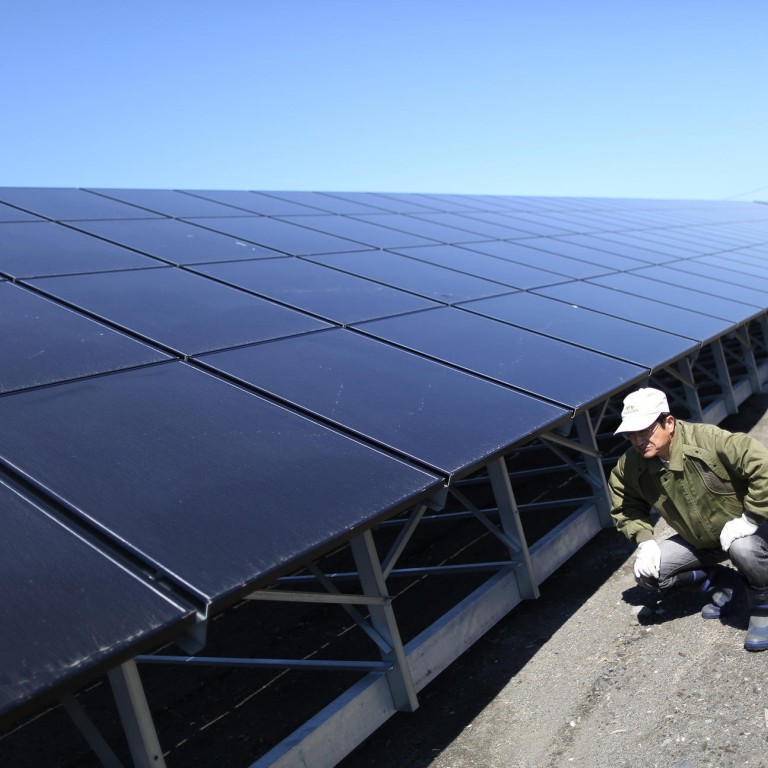
Deutsche Bank lends US$1b in Japan solar gold rush
German lender joins Goldman Sachs in funding cleaner energy in the country as the government struggles to restart nuclear power plants
Deutsche Bank plans to lend about US$1 billion for Japan solar projects, joining Goldman Sachs Group in funding cleaner energy as the government struggles to restart nuclear power plants after the Fukushima disaster.

The Frankfurt-based lender agreed last month to provide an 11.1 billion yen (HK$843.4 million) loan for a solar power project on a former golf course north of Tokyo to be operated by a unit of Spain's Gestamp Renewables Corp.
Japan may add the most solar power capacity in the world this year as a two-year-old incentive programme attracted investors including Goldman Sachs. Even so, renewable energy accounts for less than 11 per cent of its total production, compared with 31 per cent in Germany, leaving the country reliant on fuel imports after the closure of all its atomic reactors and contributing to 23 consecutive months of trade deficits.
"Every time a country implements these very, very attractive standards, you have a gold rush and that gold rush started two years ago," Van Der Sande said. "Now the water is kind of pulling back, smaller people are leaving and the real players are staying."
Deutsche Bank declined to disclose the interest rates for the solar loans. The average new lending rate in Japan was a record-low 0.779 per cent in May, data from the central bank showed. Average interest margins on US dollar lending in Asia-Pacific outside Japan were 2.35 percentage points so far this year.
"We got reverse inquiries from some of our clients offshore saying 'we are interested in Japan solar and developing projects there but having difficulty getting finance from Japanese banks'," said Van Der Sande.
Local banks tended to require that project sponsors use Japanese solar panels that international operators did not want to use because they were more expensive, he said.
Unprecedented stimulus by the Bank of Japan to overcome deflation has lowered interest rates in Japan. The benchmark 10-year yield has dropped 24 basis points to 0.555 per cent since December 2012 when Prime Minister Shinzo Abe came to power calling for an expansion of monetary easing.
The yen has weakened 15 per cent during the period to 101.76 per US dollar, making it more expensive for Japan to buy fuel from abroad.
At least three of 12 solar power plants that Goldman Sachs helped organise through investor funding were producing power, said Toru Inoue, a vice-president at the US bank's infrastructure and structured financing group in Japan.
Insurance companies had invested in bonds arranged by Goldman Sachs and sold by special-purpose companies established for the purpose of funding solar deals, Inoue said.
Two projects in Japan's northern Miyagi prefecture raised about one billion yen in funding through the sale of notes that carried either an A-minus or A rating from Japan Credit Rating Agency, documents from Goldman Sachs showed.
The bonds carried a premium over similarly rated straight corporate debt because of the relative newness of the product and lower liquidity, Inoue said. Investors wanted bigger deals and more liquidity, he added.

